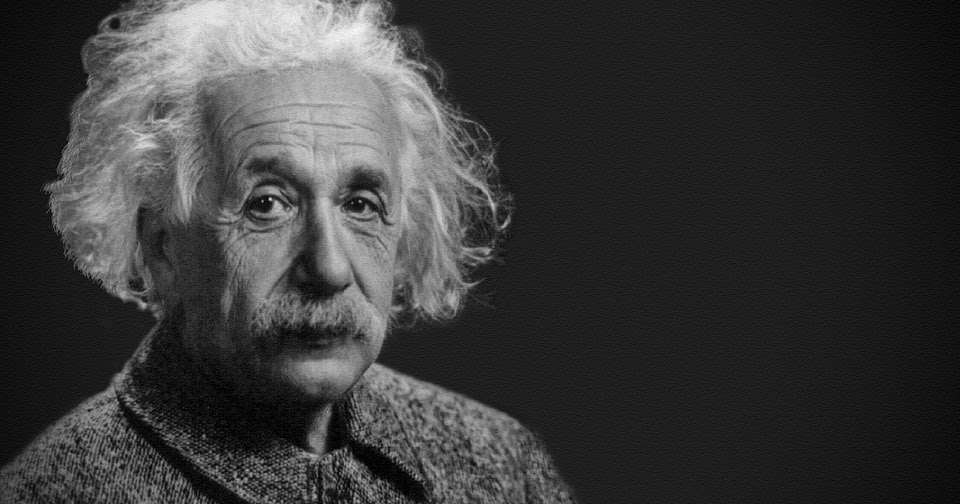Discovering The Genius: The Albert Einstein Bio
Albert Einstein, the name synonymous with genius, continues to inspire curiosity and admiration across generations. Born in Germany in 1879, his groundbreaking theories in physics transformed our understanding of the universe. Einstein's journey from a curious child to a world-renowned scientist is filled with fascinating milestones, personal struggles, and profound contributions to humanity. This article delves into the life, work, and legacy of Einstein, offering an insightful look at the man behind the iconic theories of relativity.
As we explore the Albert Einstein bio, we uncover not only the scientific milestones but also the personal experiences that shaped his thinking. His unique perspective on life and science challenges conventional wisdom and pushes the boundaries of human understanding. From his early education to his later years as a global ambassador for peace, Einstein's life is a testament to the power of questioning and innovation.
Join us as we dive deeper into the Albert Einstein bio, examining the key events that defined his life, the significant theories he developed, and the impact he made on science and society. Whether you are a student, a science enthusiast, or simply curious about one of history's greatest minds, this exploration promises to be enlightening.
What is Albert Einstein's Biography?
Born on March 14, 1879, in Ulm, Germany, Albert Einstein was a theoretical physicist best known for developing the theory of relativity, which revolutionized the field of physics. His early education was marked by a deep interest in mathematics and science, despite facing challenges in traditional schooling. Einstein's relentless pursuit of knowledge led him to publish groundbreaking papers and win the Nobel Prize in Physics in 1921 for his explanation of the photoelectric effect.
What Are the Key Personal Details and Bio Data of Albert Einstein?
| Personal Information | Details |
|---|---|
| Full Name | Albert Einstein |
| Date of Birth | March 14, 1879 |
| Place of Birth | Ulm, Kingdom of Württemberg, German Empire |
| Date of Death | April 18, 1955 |
| Nationality | German, later Swiss and American |
| Occupation | Theoretical Physicist |
| Famous Works | Theory of Relativity, E=mc² |
| Nobel Prize | 1921, Physics |
What Impact Did Albert Einstein Have on Physics?
Einstein's contributions to physics are monumental and include the formulation of the theory of special relativity and the theory of general relativity. His famous equation, E=mc², established the equivalence of mass and energy, laying the groundwork for modern physics. These theories not only explained the behavior of objects in motion but also reshaped our understanding of gravity and the fabric of space-time.
How Did Einstein's Personal Life Influence His Work?
Einstein's personal experiences greatly influenced his scientific theories and philosophical outlook. His pacifist beliefs, shaped by the turmoil of World War I and the rise of fascism, led him to advocate for peace and humanitarian causes. Despite his fame, Einstein remained deeply committed to social justice and civil rights, using his platform to speak out against racism and discrimination.
What Are Some Notable Quotes by Albert Einstein?
- "Imagination is more important than knowledge."
- "Life is like riding a bicycle. To keep your balance, you must keep moving."
- "A person who never made a mistake never tried anything new."
- "Peace cannot be kept by force; it can only be achieved by understanding."
What Legacy Did Albert Einstein Leave Behind?
Einstein's legacy extends far beyond his scientific achievements. He became an icon of intelligence and creativity, inspiring countless individuals to pursue careers in science and mathematics. His work laid the foundation for future technological advancements, including nuclear energy and quantum mechanics. Additionally, Einstein's commitment to social causes continues to resonate, reminding us of the importance of using knowledge for the greater good.
What Can We Learn from Albert Einstein's Life?
Albert Einstein's life teaches us the value of curiosity, perseverance, and the importance of questioning the status quo. His ability to think outside the box and challenge conventional wisdom serves as a powerful reminder that innovation often stems from willingness to explore the unknown. Moreover, Einstein's dedication to humanitarianism encourages us to use our talents and knowledge to make the world a better place.
How Can We Apply Einstein's Ideas in Today's World?
In today’s fast-paced world, Einstein's principles can be applied to foster creativity and innovation. Emphasizing critical thinking, collaboration, and ethical considerations in scientific research can lead to breakthroughs that benefit society as a whole. By embracing Einstein's spirit of inquiry, we can continue to explore new frontiers in science, technology, and human understanding.
In conclusion, the Albert Einstein bio reveals not only the extraordinary achievements of one of history's greatest scientists but also the profound impact of his thoughts and actions on society. From his groundbreaking theories to his commitment to peace and justice, Einstein's life is a testament to the power of knowledge and the importance of using it for the betterment of humanity.
Understanding The Life And Legacy: Biography Of Christ
Remembering Nicholas Colasanto: A Legacy In Television History
Unraveling The Mystery: How Old Was Gypsy Rose Blanchard When Her Mom Died?


